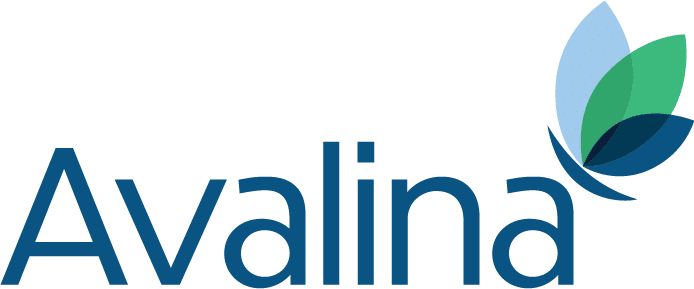
As we age, maintaining muscle mass becomes crucial for sustaining mobility, independence, and overall health. However, many seniors face the challenge of muscle degradation, a condition known as sarcopenia, which can dramatically impact quality of life. Protein plays a pivotal role in combating this natural decline, ensuring that our bodies can repair and build new muscle tissue effectively. This blog will explore why protein is particularly important for aging bodies, outline the daily protein needs specific to seniors, and offer practical tips on how to incorporate high-quality protein sources into everyday meals. By understanding and addressing these dietary needs, seniors can enhance their strength, functionality, and life enjoyment.

Understanding Muscle Loss in Seniors
Muscle mass naturally decreases as we age, a process known as sarcopenia. This condition begins as early as the fourth decade of life and accelerates after the age of 50. Sarcopenia is characterized by a gradual loss of muscle fiber size and number, leading to weakened muscle strength and reduced physical endurance. The causes of sarcopenia are multifactorial, involving decreased physical activity, changes in hormone levels, inflammation, and insufficient protein intake, among other factors.
The impact of muscle loss on seniors is profound. Reduced muscle mass significantly affects mobility and balance, increasing the risk of falls and fractures—a major cause of disability among the elderly. Additionally, it can lead to a decline in metabolic rate, which contributes to weight gain and associated health problems such as type 2 diabetes and cardiovascular disease. On a functional level, loss of muscle strength can impair the ability to perform daily activities, ultimately affecting a senior’s independence and quality of life.
Understanding the role of protein in muscle maintenance can help mitigate these effects. Protein is a critical component of muscle tissue; it aids in the repair of muscle fibers and supports the synthesis of new muscle, which is vital in slowing the progression of sarcopenia. Ensuring adequate protein intake through diet or supplementation can be a key strategy in maintaining muscle mass and function as we age.
Protein Needs for Seniors
As the body ages, its ability to process nutrients, including protein, becomes less efficient. This change necessitates an increase in protein intake to maintain muscle mass, support repair, and ensure overall body function. Research indicates that while younger adults may require about 0.8 grams of protein per kilogram of body weight daily, seniors might need approximately 1.0-1.2 grams per kilogram, or even more depending on individual health conditions and activity levels.
Several key factors influence the protein requirements of older adults:
- Activity Level: Seniors who are more active generally need more protein to support muscle repair and growth. Even moderate activities like walking or light gardening can increase these needs.
- Health Conditions: Certain medical conditions, such as chronic illnesses or recovery from surgery, can significantly increase protein requirements.
- Nutrient Absorption: Older adults often face challenges in nutrient absorption due to a decline in digestive efficiency. This can necessitate a higher intake of protein to achieve the same benefits.
Current dietary guidelines recommend that seniors focus not only on the quantity but also the quality of the protein they consume. High-quality protein sources, which contain all essential amino acids, are particularly important for maximizing muscle protein synthesis. These sources include lean meats, dairy products, eggs, and soy.
Adjusting protein intake as per individual needs and health conditions is crucial for maintaining muscle health and overall wellness. It is advisable for seniors to consult healthcare providers or dietitians to tailor dietary plans that appropriately address their specific protein requirements. This personalized approach helps in effectively combating the adverse effects of sarcopenia, supporting an active and healthy lifestyle in older age.
Best Protein Sources for Seniors
For seniors, choosing high-quality protein sources is essential for maintaining muscle mass and overall health. High-quality proteins contain all the essential amino acids needed for the body to function optimally. Here are some of the best sources of protein that are both accessible and senior-friendly:
- Animal-Based Proteins:
- Lean Meats: Chicken, turkey, and lean cuts of beef and pork provide high amounts of protein without excessive fat.
- Fish: Especially fatty types like salmon, trout, and mackerel, which are also high in omega-3 fatty acids that benefit heart health.
- Eggs: Highly versatile and rich in high-quality protein, eggs also contain vital nutrients such as vitamin D and B vitamins.
- Dairy Products: Milk, yogurt, and cheese are not only good protein sources but also provide calcium, which is crucial for bone health.
- Plant-Based Proteins:
- Legumes: Beans, lentils, and chickpeas are great sources of protein and fiber, which also help in managing blood sugar levels.
- Nuts and Seeds: Almonds, peanuts, sunflower seeds, and flaxseeds are good snacks that offer protein and healthy fats.
- Whole Grains: Quinoa, barley, and oats can complement protein intake when combined with other protein sources.
- Soy Products: Tofu, tempeh, and edamame are excellent sources of protein and are particularly useful for those following a vegetarian or vegan diet.
Including a variety of these foods in the diet ensures not only adequate protein intake but also a broad spectrum of other essential nutrients. Seniors should strive to include protein at every meal to help maintain muscle mass and support overall bodily functions. This balanced approach can be particularly effective in combating muscle loss and promoting a healthier aging process.
Managing Protein Intake: Challenges and Monitoring for Seniors
Seniors often face unique dietary challenges that can make meeting their protein needs difficult. Common issues include reduced appetite, changes in taste preferences, and physical conditions such as dental problems or digestive issues. These factors can lead to inadequate protein intake, which is detrimental to maintaining muscle mass and overall health.
To overcome these challenges, seniors and their caregivers can employ several strategies:
- Enhancing Flavor and Texture: Preparing meals that are flavorful and easy to chew can help stimulate appetite and make eating more enjoyable.
- Small, Frequent Meals: Consuming smaller portions more frequently throughout the day can be less daunting than having three large meals, especially for those with reduced appetite.
- Meal Supplements: Incorporating protein-rich shakes or smoothies can provide an easy and enjoyable way to increase protein intake.
Monitoring protein intake is equally important to ensure seniors are meeting their nutritional needs. Signs that may indicate inadequate protein intake include lethargy, muscle weakness, and slowed recovery from illnesses or injuries. Caregivers and seniors should watch for these signs and adjust the diet as necessary.
Regular consultations with healthcare providers or nutritionists can help in adjusting dietary plans to suit changing health needs. These professionals can offer guidance on how to effectively track protein intake and suggest modifications to diet or supplements based on individual health assessments. This proactive approach helps maintain an optimal level of nutrition, supporting muscle health and enhancing the overall quality of life for seniors.
Enhancing Dietary Protein: Practical Tips and the Role of Supplements
Integrating sufficient protein into a senior’s diet involves thoughtful meal planning and, at times, the use of supplements. Here are practical tips to ensure seniors get enough protein:
- Protein-Rich Recipes: Incorporating recipes that are both high in protein and easy to prepare can make meals more appealing. Dishes like stews, casseroles, and omelets can be excellent options as they are often easier to consume and digest.
- Smart Snacking: Choosing snacks that provide a protein boost, such as Greek yogurt, cottage cheese, or a handful of nuts, can help maintain protein intake throughout the day.
- Diverse Protein Sources: Mixing animal and plant-based proteins can ensure a more balanced intake of amino acids and other nutrients. For example, adding seeds or nuts to a salad or having a side of beans with dinner can make meals more nutritious.
When it comes to protein supplements, they can play a crucial role for those who struggle with regular food intake due to health issues or decreased appetite. Protein powders, ready-to-drink shakes, and protein bars are convenient options that can help meet daily requirements:
- Choosing the Right Supplement: It’s important to select supplements that are low in added sugars and artificial ingredients. Whey protein is a popular choice due to its high biological value and fast absorption. Plant-based proteins like pea or rice protein are excellent alternatives for those with dairy allergies or dietary preferences.
- Safe Use of Supplements: Supplements should complement the diet, not replace whole food sources. It’s best to use them under the guidance of a healthcare provider to avoid potential nutrient imbalances or interactions with medications.
Regularly reviewing dietary habits and supplement use with a healthcare provider ensures that the nutritional strategies implemented are still aligned with the senior’s current health status and needs. This ongoing evaluation helps adapt the dietary approach to effectively support muscle maintenance and overall health as seniors age.




